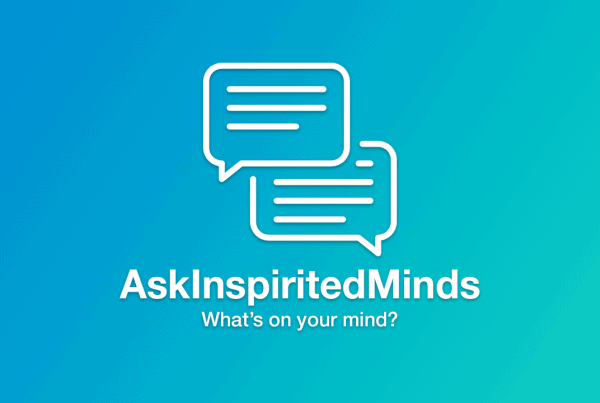Question
As-salamu alaykum wa rahmatAllaho,
I was wondering if you could please shed some light on some of my queries/doubts that have arisen as I have sought more knowledge in the field of psychology and sciences. The problem is I have been very attached towards my deen since my early years which meant that I have sought and still am seeking knowledge of the deen and so forth, however, by studying psychology as well as other sciences, I have started to doubt my sincerity and conviction to this faith and I was wondering if you could please clear my confusion as I am really in distress and need help.
My question is how can I know the truth when according to psychology, this could just be a product of how I was brought up, my society, my assumptions, my comfort and not really The Truth? Can’t it just be a product of nurture and not the reality? And if it reality, how do I know when I am but a finite creature with limited knowledge and among a hundred religions, how do I know this is true? Do I have to search about all the religions, for that I think would be very exhausting.
~
Response
As-Salaamun ‘Alaikum – peace be with you,
Thank you for reaching out to us, we know that it isn’t easy and we appreciate the confidence you have placed in us. May you be rewarded, Ameen.
Reaching out for help in this state of confusion demonstrates your sincerity and conviction in wanting to learn the Truth. It seems that you are having some trouble balancing what your heart is telling you versus what your mind is telling you and we hope that this answer can provide some clarity In Shaa Allah (if Allah wills).
First of all, we would like to reassure you that it is very much encouraged to ask questions in Islam and for you to do your research to find out more about the religion in order to understand it better. Not only will this allow you to address your concerns, but often the knowledge we learn allows us to increase our faith in the long-term. We are curious creatures by nature and we have numerous examples of when the companions of the Prophets (AS) would ask questions to deepen their understanding of the religion. However, it is important to make sure that we are searching in the correct places and sourcing credible information from those qualified to advise when it comes to matters of the Deen (religion). Allah (SWT) says:
“So ask those who possess knowledge if you do not know” [Qur’an, 16:43].
Science involves proving theories and concepts using objective and tangible finding. It is inevitable that we will eventually come to question that which is intangible and not immediately apparent to the naked eye. For example, belief in a higher Being, belief in the concept of destiny, belief in the Akhirah (afterlife) – these are all things that we cannot see. Therefore, Science will ask you, if you cannot see these things then why believe in them?
It is the divorce of spirituality and science that has led modern civilisation to only focus on things that human eye can observe. It is worth noting that scientists also acknowledge the many things in life that we cannot see with the human eye but we know to exist (e.g. air, atoms, our thoughts and conscience for example, even though this contradicts their ideology of “seeing is believing”. Once we understand the concept of ‘the unseen’, we can then begin to understand that there is a possibility of Islam being the truth.
After establishing that religion exists, we will then be approached by various ideologies (such as social science i.e. psychology in this instance) that will question whether religion is founded upon the truth or if they are indeed a product of our environment as you have expressed. For example, Science tends to restrict a particular human behaviour to being the result of either nature (genes) or nurture (our environment). It is either Islam or Science. This begs the question -why can it not be both?
We know that the Qur**’an – which was revealed over 1400 years ago – has explained many things that Science has only recently discovered, for e.g., the concept of embryology. This only demonstartes that the** two disciplines of Islam and Science can complement one another if considered dualistically. What if the Truth was both a product of your nurturing but also of your nature?
It is possible that the two can co-exist; Islam can be the Truth and simultaneously can also be a product of your society, assumptions, comfort, etc. Similarly, we believe that Islam is inherently the Truth, and we in turn, actively seek out a specific environment (nurture) that is compatible with our beliefs. This can also work vice versa – our innate thoughts can originate from our environment to reach the conclusion that Islam is the Truth.
In fact, for the most part, the teachings of Islam and Psychology actually overlap. There is a whole discipline called ‘Islamic Psychology’ which is understanding the self from an Islamic perspective. Our ‘sense of self’ in Psychology is described as the nafs (soul) in Islam. You can read more about these similarities:
- In this article
- In this podcast episode we did with Dr. Rania Awadh
Many Islamic Scholars were also ‘psychologists’ and ‘psychiatrists’, but did not identify with these titles because they were multi-disciplined and polymaths. The following articles from our Mindful Messages Blog expand more on these historical figures:
- Al Kindi, Al Balkhi, At Tabari and the ultimate Hero: what did they do? by Meanha Begum
- Sina, Ghazali and Ar-Razi: who were they? by Jamilla Hekmoun
On a final note, it is important to study the Sciences with the intention of identifying how the subject can strengthen our understanding of Islam. Having this mindset can also work to our benefit as it allows us to further expand our knowledge of the Deen (religion) itself to confirm it as the truth, and to teach it to others who may also be experiencing the doubts that you mentioned.
These are just some humble suggestions. We sincerely hope and pray that one or more of them will be suitable to your circumstances and help create ease for you, In Shaa Allah (if Allah wills). If you would like to discuss anything else on your mind, we also offer more personalized counselling here at Inspirited Minds
Please don’t hesitate to contact us if you need any further support.
Allah knows best and we hope this helps In Shaa Allah (if Allah wills).
Du’aa (supplication) always,
IM Support Team
~
Ask Inspirited Minds is a safe, anonymous and confidential space for you to ask specific questions or seek advice around your mental health and wellbeing. We will publish your question and our response on our website but will make sure to make it anonymous and change any identifiable details. If you are going through these problems, then it’s highly likely someone else is going through something similar and we hope our advice can also be of help to others in a similar situation.
Click the link below to send us your question



I just wanted to show my respect and appreciation for how well-written this response was. A lot of wisdom within these few words. I would love to meet the great minds behind it. I’d also like to extend that respect to our teachers as well.
Jazakallah khair for your work. May Allah bless you, increase your and our knowledge, and bring us closer to Him and the Truth.